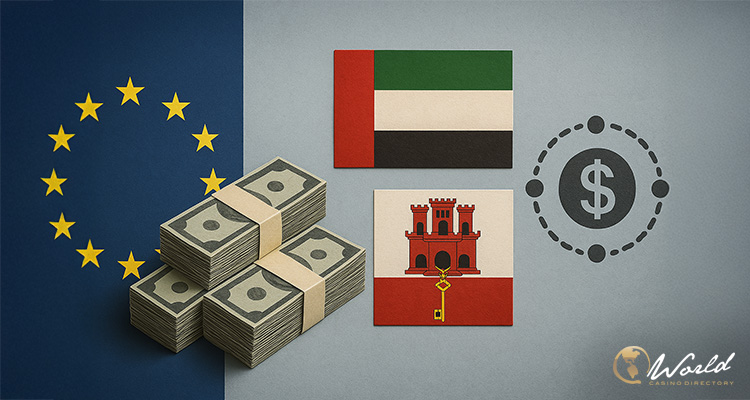In a significant move for Gibraltar, the European Parliament has approved the European Commission’s proposal to remove the British overseas territory from the EU’s high-risk list of jurisdictions that face deficiencies in anti-money laundering (AML) and counter-terrorist financing (CFT) measures. This decision, made on Wednesday, July 9, marks the conclusion of a long-standing issue that had raised concerns within the EU, particularly among Spanish lawmakers.
Gibraltar’s removal from EU’s high-risk list clears final hurdle:
The debate surrounding Gibraltar’s removal has been contentious, with some Spanish MEPs vehemently opposing the move due to Madrid’s claim of sovereignty over the territory. Despite this, the proposal was backed by a majority of MEPs, and four resolutions that sought to block it were rejected. These resolutions, some of which focused on Gibraltar, were defeated by wide margins, with the most notable being a resolution tabled by Spanish Vox MEPs.
The vote on Gibraltar’s delisting had been delayed previously, partly due to political tensions. However, the European Commission successfully argued that Gibraltar had met the necessary criteria by making substantial improvements to its regulatory frameworks. The delisting brings Gibraltar in line with the Financial Action Task Force (FATF), which removed Gibraltar from its grey list earlier this year following extensive reforms in the territory’s financial sectors.
The European Parliament’s vote is seen as a victory for Gibraltar, which has worked hard to improve its reputation as a secure and compliant financial center. Nigel Feetham, Gibraltar’s Minister for Trade, Justice, and Industry, expressed his satisfaction with the outcome, highlighting the tireless efforts of his ministry and the broader government to ensure Gibraltar’s compliance with international standards.
Feetham emphasized that the delisting not only restores Gibraltar’s standing as a leading financial hub but also reaffirms the commitment of the territory to fighting money laundering and terrorist financing. He acknowledged the pivotal role that Gibraltar’s engagement with the European Commission and Parliament played in securing the vote.
“This is testament to the work undertaken by my ministry to bring Gibraltar to the vanguard of the fight against money laundering and counterterrorist financing,” Feetham remarked, as reported by Gibraltar Chronicle. “Our reputation as a world-leading financial center has been rightfully restored.”
The process moving forward:
The final step in the process will be for the European Council to confirm that it has no objections to the proposal. Once this is done, the delegated act will be published in the EU’s official journal, and Gibraltar’s delisting will be official. This process is expected to conclude soon, removing the uncertainty that has surrounded Gibraltar’s status for over a year.
The Commission’s proposal also included the removal of several other countries from the EU’s grey list, including the United Arab Emirates, Panama, and the Philippines, among others. In total, eight jurisdictions will be removed from the list, a move that could potentially ease trade relations with some of these nations. The updated list will also add new countries such as Algeria, Venezuela, and Laos.
Despite the success, Gibraltar’s government is clear that this victory is just one step in its ongoing efforts to maintain the highest international standards. Feetham confirmed that the government will continue its work to improve its systems and ensure that Gibraltar remains in compliance with global regulations.
“We will not rest on our laurels. We will continue to improve and are committed to maintaining the highest international standards and working constructively with our European and international partners,” Feetham added.
This announcement is particularly significant given the broader context of the European Union’s increasing focus on anti-money laundering regulations. As the EU continues to update its list of high-risk jurisdictions, the efforts made by Gibraltar to enhance its financial regulatory frameworks have positioned it as a model for other jurisdictions aiming to meet global compliance standards.
(Except for the headline, this story has not been edited by PostX News and is published from a syndicated feed.)

